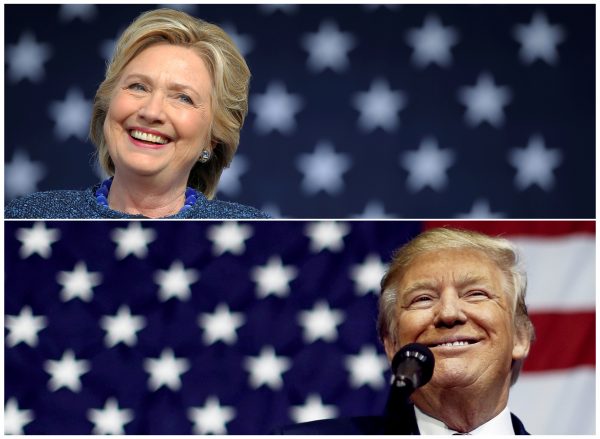Under a Clinton presidency, the United States and Japan are likely to continue with current basing policies. In a meeting on the sidelines of the UN General Assembly in September, Clinton reassured Japanese Prime Minister Shinzo Abe that she was committed to strengthening the alliance. Tokyo suspended construction of the Futenma replacement facility in Henoko in March in an effort to placate Okinawa after Governor Takeshi Onaga took the issue to court. But the Abe government will undoubtedly restart construction once the legal battle is over, if not before. Overall, under Clinton the issue of the bases will not change in a significant way from its current trajectory.
But Clinton’s other Asia policies may be cause for greater concern. While assuring allies that ‘we have mutual defence treaties and we will honour them’, the former secretary of state has also indicated that she will stand up to bullies like Russian President Vladimir Putin. Compared to current US President Barack Obama, Clinton has indicated a more hawkish stance against China’s island-building activities in the South China Sea. Experts also suggest that she will take ‘hard-line measures’ against North Korean nuclear and missile tests.
Given Clinton’s experience, it is unlikely that she will be a careless leader. Still, the US military bases on Okinawa will remain a key target in the event of a conflict in the region. A ‘strengthening of the alliance’ may also mean an increased US military or Japanese Self-Defence Forces (SDF) presence in Okinawa to allow the United States and Japan to respond, if necessary, to threats from the region. Okinawan opposition to the military bases is likely to grow under such circumstances. Clinton therefore represents a continuation of the status quo.
On the surface, a Trump presidency appears beneficial to Okinawa. A United States withdrawal from Asia implies a drawing down of its military presence in the prefecture and a reduction of the ‘burden’ on Okinawa hosting US military bases.
But it is more likely that Trump’s foreign policies would be disastrous for both Japan and Okinawa. Trump’s rhetoric about the alliance is remarkably ill-informed. Despite evidence to the contrary, Trump has repeatedly asserted that ‘Japan does not pay enough’ host-nation support for bases, and indicated that he’d be ‘prepared to walk’ and leave the country to develop its own nuclear deterrent.
Such a drawdown would create a nightmare scenario for regional security. China would likely be emboldened by a US withdrawal to push harder on its territorial claims, while Japan would be forced to increase its SDF presence in Okinawa in order to protect the disputed Senkaku/Diaoyu islands. China, in turn, would likely view such moves as evidence of Japan’s remilitarisation, with Sino–Japanese relations deteriorating dramatically as a result.
If a US withdrawal implies the loss of its nuclear umbrella, Japan and South Korea might also pursue their own nuclear deterrence options. The ensuing arms race would greatly increase the possibility of a regional conflict breaking out. Okinawa, at the strategic centre of Northeast Asia, would be a key target.
Fortunately, even if Trump wins the presidency, the ideas he has outlined during campaigning won’t necessarily become US policy. As Michael Green points out, ‘There’s no institutional basis, no support, for his policies to be implemented…Courts, Congress, think tanks, media, uniformed military, and our allies — there are many, many institutions that will be an obstacle to him’.
Despite Trump’s claims, the reality is that the United States benefits greatly from current regional arrangements. Its alliance agreements with Japan and South Korea allow it to project power and influence in the Asia Pacific.
But the deeper problem concerns the uncertainty that a Trump administration would create for the region. The Republican candidate has made so many contradictory statements that it is difficult to know what his Asia policy would actually be if elected. Even if the US foreign policy establishment blocks his most outlandish ideas, allies like Japan and South Korea would still lose confidence in the United States and seek to increase their military preparedness outside of alliance frameworks. The Japanese government would become much more willing, in the name of national security, to override Okinawan objections over base issues.
The US presidential election offers little encouragement for those in Okinawa seeking a resolution to the base issue and especially for those still hoping that the Futenma Airbase will be relocated outside the prefecture. A Clinton presidency suggests the status quo; Trump threatens chaos.
Kerri Ng is a PhD Candidate at the Department of International Relations, Coral Bell School of Asia Pacific Affairs, The Australian National University.

